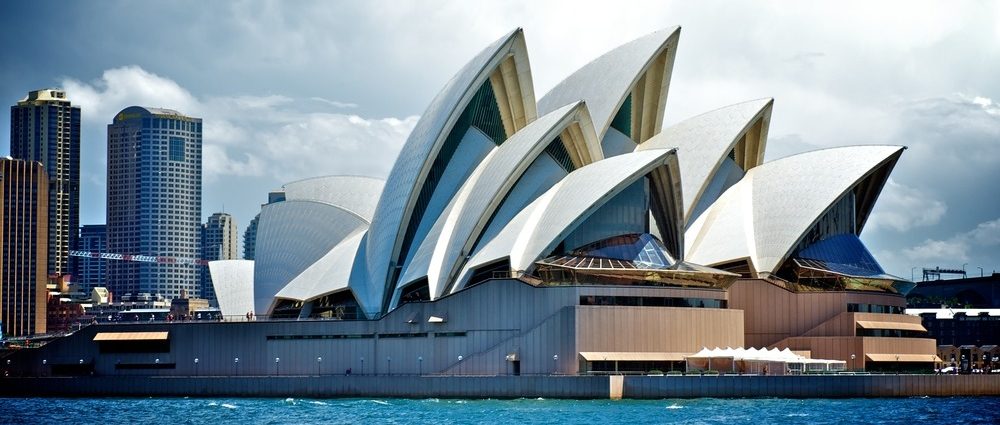
International Competitions Consultancy Board
Since the 1950s, UNESCO entrusted the UIA to supervise the application of the Standard Regulations, assist competition organisers and promote international competitions. Professional international design competitions endorsed by the UIA have taken place all over the world and have resulted in some of the most iconic edifices of the 20th century such as the Sydney Opera House, Georges Pompidou Centre in Paris, the Tokyo International Forum and the Alexandria Library in Egypt.
Competition Regulations and Best Practice Recommendations
Developed in collaboration with the UIA in 1955, adopted in 1956 by the General Conference of UNESCO and revised in 1978, the UNESCO Standard Regulations for International Competitions in Architecture and Town Planning remain the global reference for competitions focusing on the quality of the proposal. They are based on the main tenets of transparency, equal treatment and non-discrimination and guarantee professional evaluation under anonymity as well as the protection of authors’ rights.
The UIA Competition Guide for Design Competitions in Architecture and Related Fields, developed by the UIA International Competitions Commission (ICC) in 2016, includes updated best practice recommendations for the implementation of the UNESCO Regulations and can also be used for national competitions. With a handful of UIA-endorsed competitions launched every year, the UIA’s goal is to set high standards, advocate best practices worldwide and promote design quality.
ICC consultancy
The UIA provides consultancy for competitions and awards/prizes through the consultancy team of its specialised body, the International Competitions & Awards Commission (ICC). Since 2017, the ICC also began advising interested Member Sections in elaborating or reviewing their national regulations for architectural design competitions.
ICC consultancy on competitions consists of advising on the competition type, definition of the task, evaluation criteria, deliverables, formal and procedural aspects, composition of the jury, number of prizes and amount of total prize money, key parametres of the mandate in view in the case of professional competitions, educational value in the case of student competitions, elaboration of the jury report and organisation of the exhibition. The ICC also provides advise for the conduct of the jury evaluation session as well as an observer supervising the session and giving competent advice on formal and procedural matters.
The ICC has elaborated a series of guidance documents for organisers collaborating with the UIA in order to assist them in the preparation of briefs. The Commission periodically reviews such working documents in order to include new experiences and insights.
The ICC also advises on the organisation of international architectural awards/prizes.
It promotes UIA competitions and competition culture worldwide.
ICC work
The work of ICC is multifaceted. Besides consultancy on competitions and awards, the elaboration and review of guidelines and guidance documents for organisers, the Commisssion promotes UIA competitions and prizes culture worldwide, professionalises the archiving, collects data on competitions and organises special projects and seminars in relation with the UIA Congresses.
UIA endorsement
Following the UIA’s goals, endorsed competitions in the previous years respect the holistic, culture-centred and interdisciplinary approach aligned with the UN Sustainable Development Goals.
Endorsement by the UIA is an assessment of conformity to UNESCO Regulations and the UIA best practice recommendations. It is a guarantee of fair conduct of the competition with equitable conditions for the competitors, the winner and the organiser. Endorsed competitions reach the interest of architects from all over the world and bring prestige to the organisers and publicity for the project.
Find out more about UIA competitions and prizes
Paula Huotelin
Finland
Tibor Fatyol
Hungary
Kyriakos Pipinis
Greece
Doris Wälchli
Switzerland
Thomas Zinteri
Austria
Christophe Millet
France
Emmanuelle Raoul-Duval
France
Sofia Cattinari
Italy
Ana Maria Zahariade
Romania
Mirona Crăciun
Romania
Hanna Bondar
Ukraine
João Augusto Pereira Júnior
Brazil
Marta Morelli
Peru
Juan Pablo Tuja
Uruguay
Kan Liu
China
Kin Wai Stephen Ho
Hong Kong SAR China
Eui Young Chun
South Korea
Moemedi Gabana
Botswana
Francis Sossah
Côte d’Ivoire
Dhekra Ben Fadhel
Tunisia
Aleksei Komov
Russia
Alper Ünlü
Russia
Marta Gonzalez
Colombia
Jean Pierre Jacques Crousse De Vallongue Rastelli
Peru
Virginia Ruiz Mirazo
Uruguay
Donald Bates
Australia
Nabi Newaz Khan
Bangladesh
Chen Wu
China
Franklin Yu
Hong Kong SAR China
Yee Cheung Adrian Lo
Hong Kong SAR China
Sudeep Sharma Paudyal
Nepal
Naima Rachedi
Algeria
Manga François Bongo
Chad
Nassour Abdoulaye Ali Mahamat
Chad
Hesham Seoudy
Egypt
Zeinab Feisal
Egypt
Florence Nyole
Kenya
Amadou Issa Bore
Mali
Dharam Bunjun
Mauritius
Tosan Omatsone
Nigeria
Abel Onomake
Sierra Leone
Karim Chaabane
Tunisia
- UIA Competition Guide - Guidelines for Design Competitions in Architecture and Related Fields
- UIA Participation in International Awards/Prizes - Guidelines
- Promotion of High-Quality Architecture through Architectural Design Competitions and Awards/Prizes
- 2023 ICC Special Edition
- ICC REPORT TO THE UIA GENERAL ASSEMBLY (2021)
- ICC SPECIAL EDITION
- ACE-UIA DECLARATION ON DESIGN COMPETITIONS